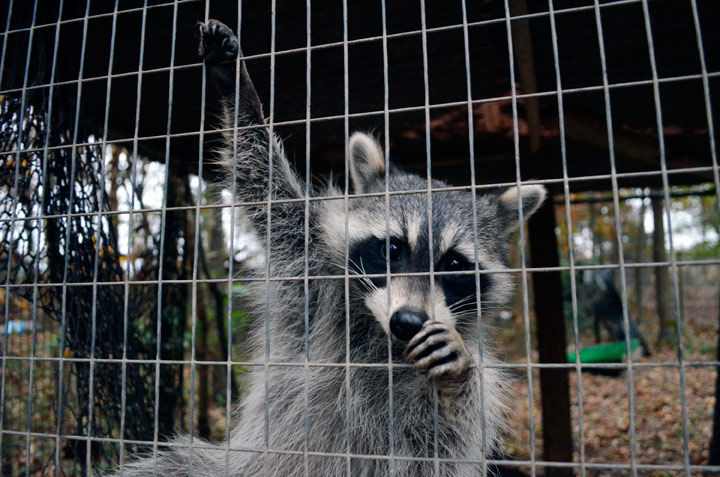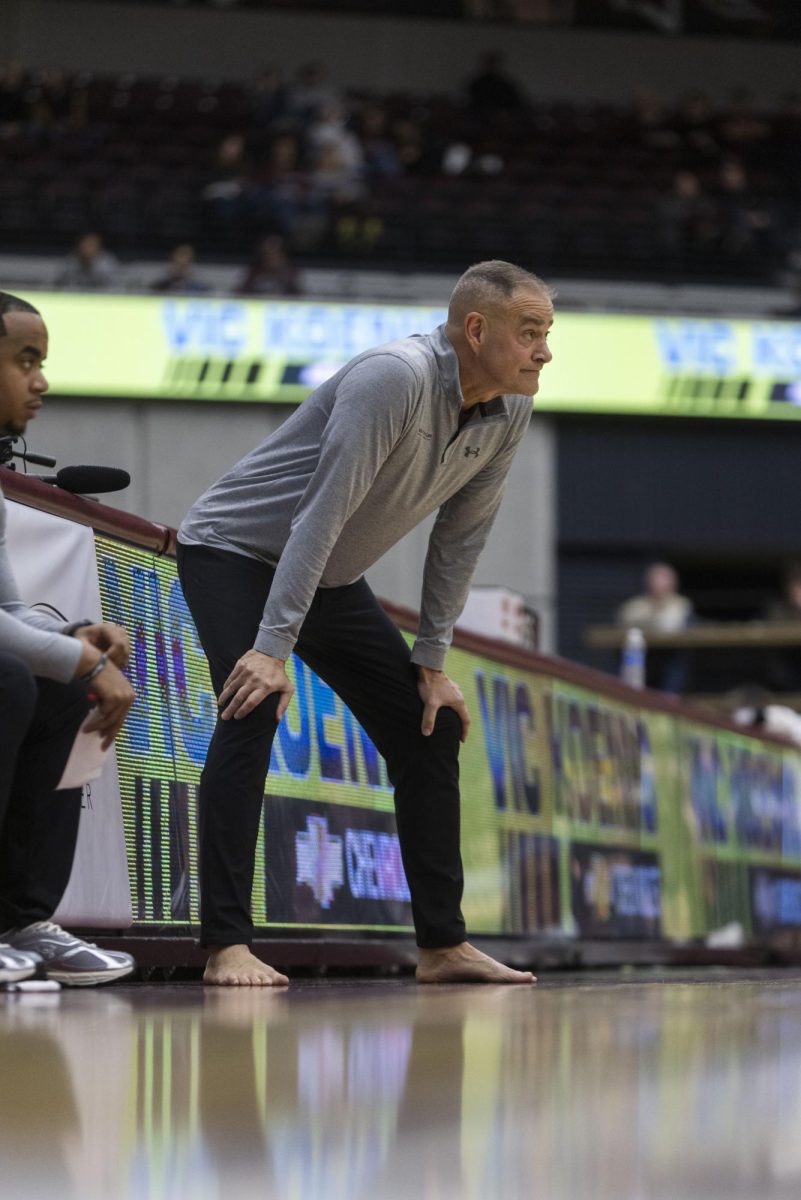Free Again Wildlife Rehabilitation
November 2, 2015
Raccoon are fun, squirrels are rewarding and possums are misunderstood, according to Beverly Shofstall, who spends her time nurturing and raising wild animals.
Shofstall started Free Again Wildlife Rehabilitation 25 years ago and continues to manage the not-for-profit operation located in Carterville, the only all-species rehabilitation center in southern Illinois.
Free Again rehabilitates injured and orphaned animals so they can return to the wild. It also provides wildlife education programs in the community where it is able to show the animals to people up close.
Advertisement
Visitors will find themselves surrounded by dozens of wooden and wired cages filled with everything from raccoons to turtles to hawks. Most of the animals are located in outdoor cages, and the rest stay in a barn located on the property.
The five most common animals for them to house are squirrels, rabbits, raccoons, possums and deer.
“They are the animals people have the most interactions with,” Shofstall said. “People often see these animals in their own backyard.”
“Beyond that, you never know what we’re going to get,” Shofstall said. She has also taken care of wildlife including coyotes, foxes, groundhogs, bobcats, otters, beavers, songbirds, and birds of prey, including two permanent bald eagles that were injured past the point of recovering fully enough to be released into the wild.
She is working to release the healthy baby animals that were dropped off in the spring — the most common time for newborn animals to be abandoned by their parents. After spending the past six months preparing the animals to be re-introduced into the wild, Shofstall said she usually releases animals twice a week in the fall.
However, fall is not the busiest season for Free Again, which houses as many as 300 animals in the spring. Right now they are caring for about 150, Shofstall said.
“We don’t have a team of rescuers like you see on the Animal Planet shows,” Shofstall said.
Advertisement*
She said the first responder is the person who finds the injured or abandoned animal and either brings it to Free Again or notifies her of the problem. Shofstall said rescuers can call Free Again at 618-988-1067 for more instructions on how to care for the animal and transport it to the rehabilitation center.
Shofstall, who has a degree in animal health technology, has held a wildlife rehabilitation permit for 30 years. In addition to the state permit that allows her to handle mammals and reptiles, she also has an educational permanent possession permit from the federal government, which allows her to have song birds and birds of prey.
This allows her to use the birds of prey she is caring for to teach groups about wildlife. She has about 10 birds she uses for educational programs at schools and venues like the Science Center and the Crab Orchard Wildlife refuge.
The operation does not receive funding from the government, so everyone involved with the organization is a volunteer, including Shofstall. “We survive heavily on donations,” Shofstall said. Volunteers donate supplies, time and money.
“The majority of our income comes from people with $25 donations,” Shofstall said. The other funding comes from fees she charges at her bird of prey programs. She said total annual expenditures are about $33,000.
Shofstall said she consistently has 15 to 20 volunteers every week to help with animal care, cage building, animal releases and cleaning. About half of the volunteers are university students.
“It’s a seven-day operation,” Shofstall said. She said she often works 18 hours in a day.
“We do need volunteers to span a great deal of time,” Shofstall said. “When you put it in that perspective, those 15 are not very many.”
The sophomores of SIU’s First Scholar Program, a program built to help a select group of first-generation students thrive on campus, chose to volunteer for Free Again as their semester project.
Cristina Castillo, coordinator of the First Scholars Program, said her students chose it because of the lack of funding and volunteers.
The students are rebuilding a fox enclosure, planting flower beds, cleaning cages and installing storage sheds.
The students are also using fundraisers such as bake sales and supply drives to help the center get more resources. Their first fundraiser was at Vulture Fest, a music festival in Makanda, where they raised $75 in donations.
Next weekend they are helping release a red-tailed hawk, owl and about 15 squirrels, now that the animals have proven they are able to survive and feed on their own after undergoing live training with prey such as mice.
“We’re asking the community to come and join this effort of students to really make a difference in that place,” Castillo said. “It really is a wonderful program.”
Anna Spoerre can be reached at [email protected] or @ASpoerre_DE
Advertisement








